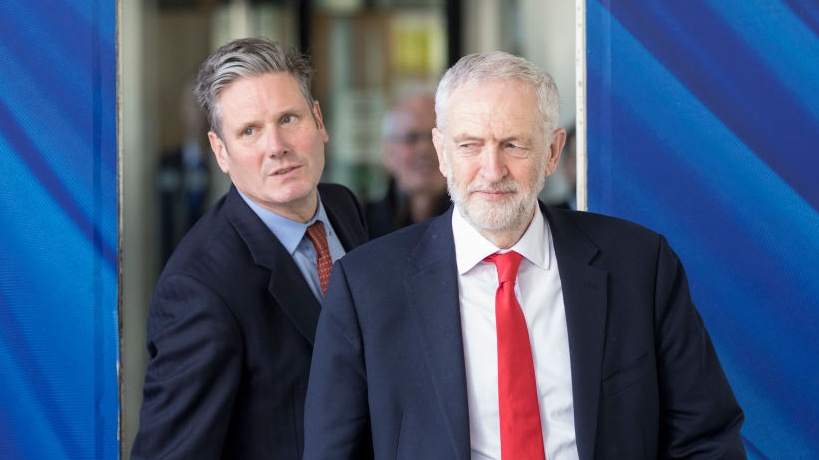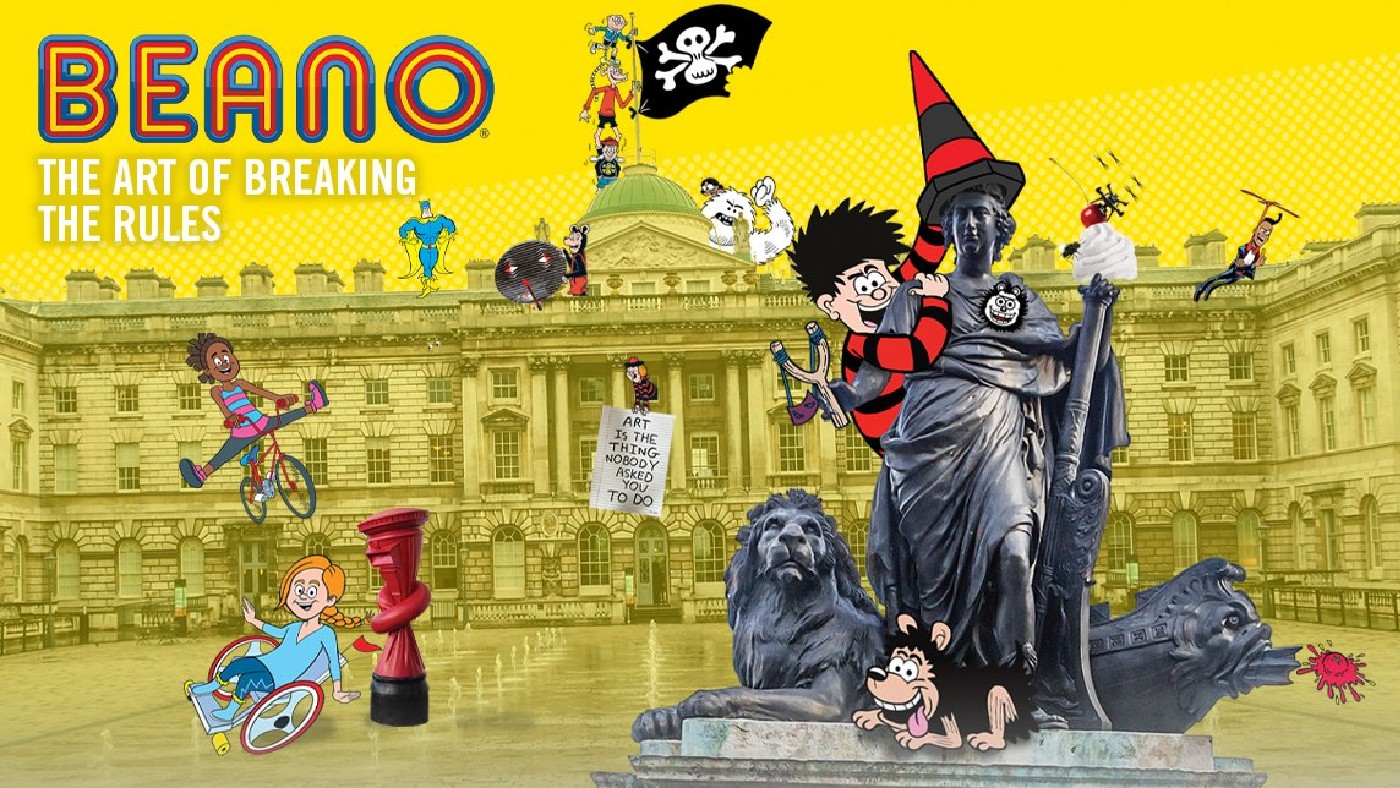Instant Opinion: Labour ‘can’t just give up the fight’ on Brexit
Your guide to the best columns and commentary on Monday 29 June

A free daily email with the biggest news stories of the day – and the best features from TheWeek.com
You are now subscribed
Your newsletter sign-up was successful
The Week’s daily round-up highlights the five best opinion pieces from across the British and international media, with excerpts from each.
1. Michael Chessum, national organiser for Another Europe and Labour activist, in The Independent
on the need for Brexit scrutiny
The Week
Escape your echo chamber. Get the facts behind the news, plus analysis from multiple perspectives.

Sign up for The Week's Free Newsletters
From our morning news briefing to a weekly Good News Newsletter, get the best of The Week delivered directly to your inbox.
From our morning news briefing to a weekly Good News Newsletter, get the best of The Week delivered directly to your inbox.
Brexit is a battle over the type of country we want to become. Labour can’t just give up the fight
“The awkward reality of the situation is that, despite having been elected to the Labour leadership by a landslide in part because of his Remainer credentials, Keir Starmer’s attitude to the question of Brexit is eerily reminiscent of the Corbyn leadership. Labour knows that the fighting for an extension is the right thing to do, and could have had a chance of success, but this ultimately comes second to the party political calculation that it cannot be seen to ‘frustrate’ the process in a way that Johnson could exploit at the next election... The left as a whole has spent many years reluctant, or outright unwilling, to really engage with the Brexit process, regarding it as a technocratic maze and the property of centrist obsessives. But these negotiations – and the agreements – they produce are not going to just be dry and technical documents. Brexit is, and always has been, a battle for the kind of country Britain will become. It is too late to stop it entirely, but if Labour is to remain attached to political reality then it must develop a strategy to resist, oppose and, eventually, reverse the Brexit juggernaut.”
2. Tom Harris in The Daily Telegraph
on making more, not less, political appointments
A free daily email with the biggest news stories of the day – and the best features from TheWeek.com
Mark Sedwill’s exit should break the grip ‘impartial’ civil servants have on power
“The problem for the UK civil service is that a refusal to bend has increased the chances of its breaking. When Britain voted to leave the EU, it was every civil servants’ job to consider how, not if, the break should be made. Yet it would be hard to conclude that our ‘impartial’ public servants have done everything in their power in the last four years to achieve that end. As a nation, we are far too reluctant to embrace a model of government in which impartial and professional civil servants, working to ensure that the government’s policies are successfully implemented, work closely and co-operatively with political appointees who, in many more cases than at present, should have the final say (aside from ministers, obviously). It is up to the electorate, not civil servants, to make the judgment as to whether those policies are right for the country. As well as the structure of government, it is the culture and mindset that needs reforming. We need to stop seeing ‘political’ as a swear word and ‘impartial’ as a an immutable good. Government is political and we need to get used to it. Sedwill’s departure and Frost’s arrival will aid that process.”
3. Leo Mirani in The Guardian
on controlling online misinformation
No more going viral: why not apply social distancing to social media?
“In the absence of a vaccine or cure for Covid-19, the approach to dealing with the deadly virus has been to introduce barriers to transmission: physical-distancing rules, stay-at-home measures, barriers such as screens and face masks. Now apply that to social networks. Two years ago, WhatsApp limited the number of people to whom an individual can forward a single message at one time. The result was, according to an MIT study, that ‘80% of messages died within two days’. WhatsApp says forwards overall declined 25% as a result of the change. The messaging app followed up this year by imposing restrictions on sending messages that had already been forwarded lots of times. In less than a month, that caused ‘a 70% reduction in the number of highly forwarded messages sent on WhatsApp’. WhatsApp’s example shows that changes to the structure of a network can have enormous effects.”
4. Claire Foges in The Times
on the scourge of post-lockdown parties
Let’s throw everything at Britain’s litter problem
“Last week’s plastic carnage was not some aberration but confirmation that Britain’s litter problem is truly dire. According to the Hygiene Council, ours is the dirtiest developed country in the world. About 122 tonnes of cigarette-related litter are dropped every day. Councils spend hundreds of millions a year clearing it all up — too late for the creatures who die as a result of the pollution. The RSPCA receives about 5,000 calls a year about litter-related injuries to animals. Our rivers, lakes and seas have become a soup of plastic particles; at the last count there were an average of 358 items of litter per square kilometre of seabed... Litter matters, but what can we do? Anti-littering campaigns are the usual answer but seeing the volume of rubbish last week, they seem inadequate. If people are thick-headed enough to leave their KFC cartons on the grass in the first place, I doubt that a strongly-worded poster will get through. Instead of simply asking people to do the right thing, we must force them to do it.”
–––––––––––––––––––––––––––––––For a round-up of the most important stories from around the world - and a concise, refreshing and balanced take on the week’s news agenda - try The Week magazine. Start your trial subscription today –––––––––––––––––––––––––––––––
5. Binyamin Appelbaum in The New York Times
on the NBA’s battle against inequality
Is it basketball … or socialism?
“Professional sports — the pinnacle of pure competition. Thirty N.B.A. teams stocked with the world’s best basketball players, all vying for one championship trophy. But here’s the truth that doesn’t get said often enough: Preserving competition on the court requires strict limits on competition everywhere else. The N.B.A. knows that unregulated competition would be a disaster. And the N.B.A.’s rules, as explained in the video above, could help to revive the American economy, too. It may be a while before you can catch a live game, but you can still pick up something from watching the N.B.A.” (Follow the link to find out more with the NYT’s opinion video.)
-
 Political cartoons for February 16
Political cartoons for February 16Cartoons Monday’s political cartoons include President's Day, a valentine from the Epstein files, and more
-
 Regent Hong Kong: a tranquil haven with a prime waterfront spot
Regent Hong Kong: a tranquil haven with a prime waterfront spotThe Week Recommends The trendy hotel recently underwent an extensive two-year revamp
-
 The problem with diagnosing profound autism
The problem with diagnosing profound autismThe Explainer Experts are reconsidering the idea of autism as a spectrum, which could impact diagnoses and policy making for the condition
-
 ‘Irony’ as Zoom calls staff back to office
‘Irony’ as Zoom calls staff back to officefeature And other stories from the stranger side of life
-
 The U.S. veterinarian shortage crisis
The U.S. veterinarian shortage crisisSpeed Read With an anticipated shortage of 15,000 vets by 2030, it will be harder to get care for pets
-
 Boris Johnson shocks UK by resigning from Parliament
Boris Johnson shocks UK by resigning from ParliamentSpeed Read
-
 Company teaches mask-wearers to smile again
Company teaches mask-wearers to smile againfeature And other stories from the stranger side of life
-
 Beano comics sent to Australia
Beano comics sent to Australiafeature And other stories from the stranger side of life
-
 Bees delay flight for three hours
Bees delay flight for three hoursfeature And other stories from the stranger side of life
-
 Global happiness has been 'remarkably resilient' over the past three years
Global happiness has been 'remarkably resilient' over the past three yearsfeature
-
 Ministers considered killing all cats during pandemic
Ministers considered killing all cats during pandemicfeature And other stories from the stranger side of life